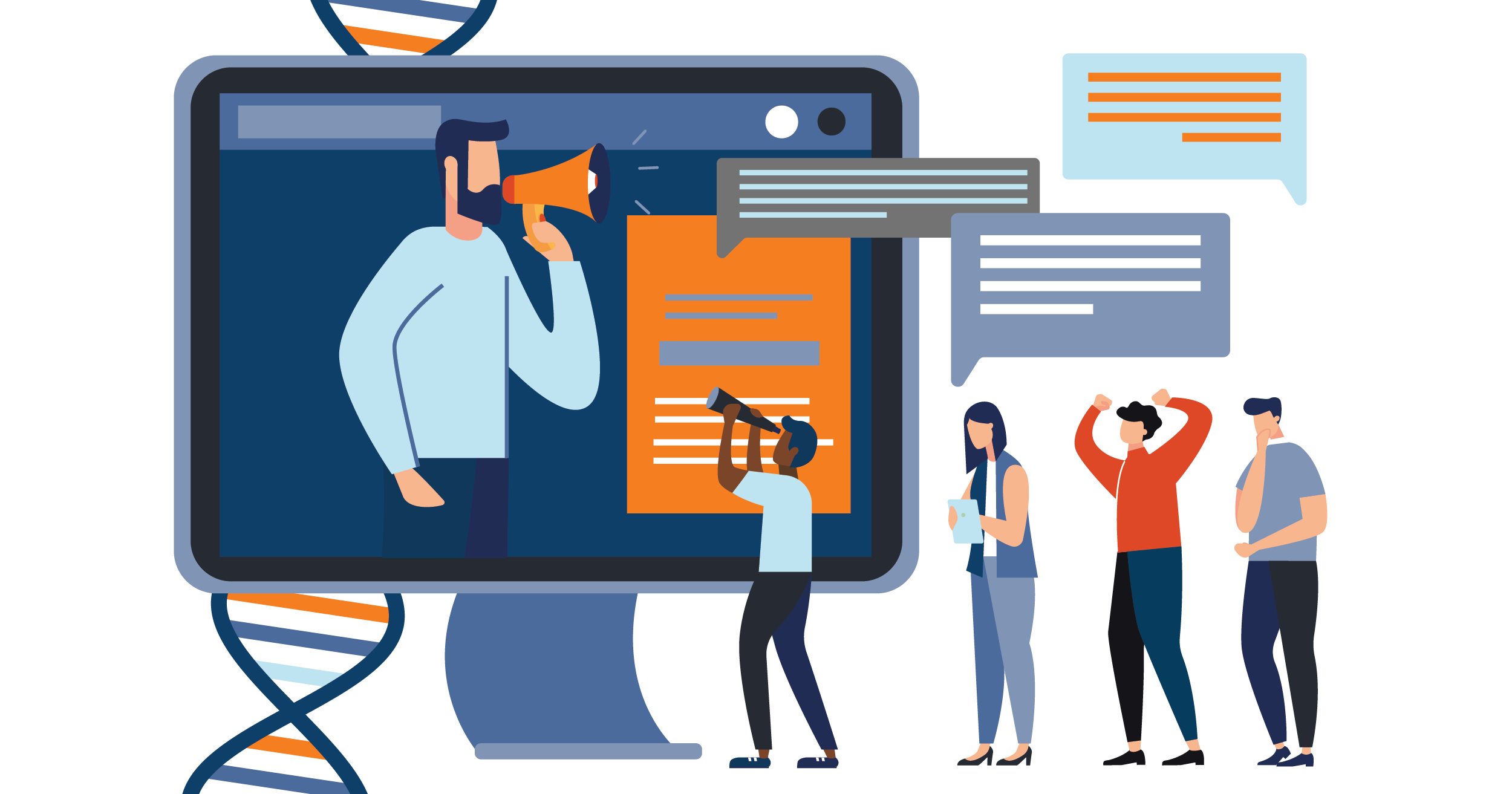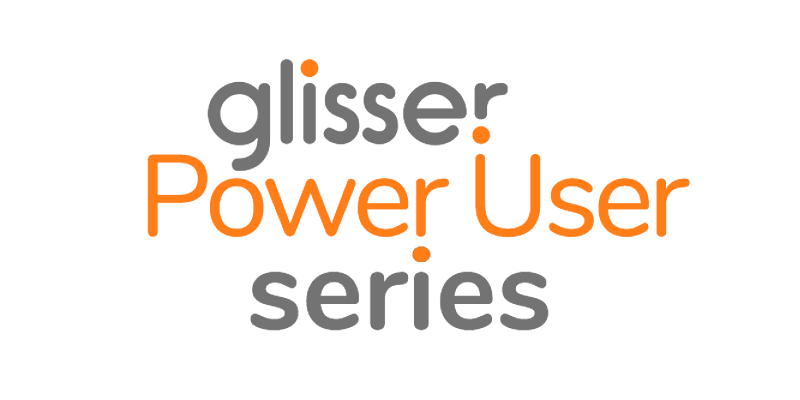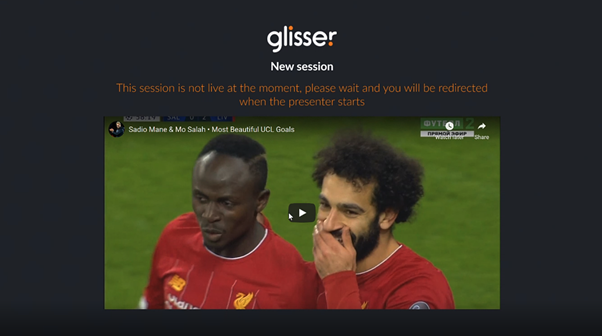The following is a transcript of the 18 February 2021 interview by Robert Elms featuring Mike Piddock about the future of the events industry.
Listen on BBC Radio London (interview starts at 2:13:00)
Robert Elms: We all know there are quite a few signs of light in all of the tunnels we’ve been stuck in. Unfortunately, what will be one of the last to come back is the hospitality industry and the events industry, big festivals, and big gigs. I’m going to talk to someone now, Mike Piddock, who is the CEO of Glisser about the events industry. Hello Mike.
Mike Piddock: Hi, how’re you doing?
RE: Very well indeed. I would say how’s the events industry doing, but clearly it’s not been a good time.
MP: No, [Coronavirus has] hit the events industry hard, but the events industry is full of people that react and respond and it’s really done itself proud in the way it has responded to this situation and held itself up, so we’re surviving.
RE: Obviously there are technological solutions and we’ll come onto those a bit, and we’ve all gotten used to Zoom meetings rather than physical ones and, unfortunately, Zoom funerals, whatever it might be. Is there still going to be an appetite for collectively getting back together?
MP: Well, first of all there's huge incentives to get people back to physical events. A lot of livelihoods that they support. They generate a lot of taxes. In particular, I think people want to get back to them. There's also something really symbolic about events in that when we can get together again that means we've beaten this thing. So it's kind of really a high marker of success, so I think there's a lot of driving factors towards getting people in rooms or in venues together. But at the same time, there are factors that stop us doing that, not least, that this is about people and people's own personal views on whether they want to do that and whilst many of us love to get together or want to do that as soon as we can, there's gonna be another swathe of people that won't want to do that if they haven’t been vaccinated off they're still shielding vulnerable people. So we've got to accept that the audiences, i.e., people that attend events are going to have different views on this and have different time frames at which they want to get back.
RE: Yeah, I mean I'm kind of intrigued by that balance, really, I was having this discussion with a friend the other day and this was more specifically about sporting events – about football and cricket and rugby and all of those. And I was saying that one of the dangers, particularly with something like football is that you go out of habit. If you're a football fan you go every week or every other week to see your team. And if you've got out of that habit, and you've got used to sitting watching the game on a little screen or whatever – are you going to get back out there in the rain and get on the tube?
MP: Yeah, I think that's where people will be different – folks who have different views on when they want to do that. But I think we've all realised under lockdown, nearly a year now, that those meetings, those gatherings, those events are important to us we do enjoy them there are elements of that, that physical nature that is different, and as much as we were doing a lot virtually, some things can't be recreated. Sporting events are a great example, sporting events have been run as physical events, but they also kind of had a virtual component all along as you stream football matches on your TV for years now. So they've always had a virtual element and people have still attended. Because there's something about being out in the ground with your friends, going to the pub beforehand, that makes them special. So, I think sporting events will actually be one of the things that do come back quickly. And I suspect there'll be demand for those games as soon as tickets are available.
RE: Let's look at the more personal events: things like weddings, or you know, big ceremonies, bar mitzvahs, whatever it might be, those kind of events where we spend a lot of money. How have people been able to adapt for those?
MP: I think a lot of people have taken the kind of things that they’re learning in the business environment (with the use of zoom and teams and things like that) to create virtualization of those events, and that's not something new, we’ve just been forced into it. I certainly remember at my wedding, we were on a Zoom call with my brother-in-law who was out fighting in Afghanistan. So, we've always combined the digital with the physical event – it just happens at the moment that people have had to do most of it digitally and very little physically. I think as we come back, as people are vaccinated, as this begins to go away, you'll see that shift but you end up with what we call a hybrid event, a blended event, where part of the audience, part of the people, are there in-person, and part of the audience is remote and virtual, and you've got to blend the two and give them both a great experience.
RE: Is there a danger that, what you've already said there'll be these two different kind of ways, that what we'll get is that going to physical events, whether it's festivals or concerts or whatever it may be, will become much more expensive and will be for the elite few who can afford it, and then everyone else or watch it on their little screen at home.
MP: I think it's fair to say that if you limit the number of people at the physical event and particularly if you have to limit because there is still physical distancing in place or you need more space for testing facilities, and the various things that will come as we emerge out of this, then with with fewer places there, there will be a tendency for prices to go up. There is an opportunity though to look at ways you can subsidise that and see whether by bringing that virtual audience which can be reached, relatively cheaply.
RE: And globally as well.
MP: Absolutely, and again, I'd use the analogy of football. You know there's an audience there at the ground that are paying so much per ticket and you know there's lots of issues around ticket prices, but a lot of clubs do good things around that keep the price down. But ultimately, those organizations, those businesses, those football clubs, certainly at the Premier League level, make more money from selling their virtual product around the world. So, if a business event organizers and people that run events sort of see it with that mindset, they say yeah, but the experience is still going to be the best and we're going to we're going to deliver that experience to the people that want to come on, maybe can afford to come, or that we are the best audience for our live product. And yet we can reach this much larger virtual audience with another offering. It doesn't need to be secondary but it's certainly different, then that's an opportunity rather than something that has to be kind of born reluctantly.
RE: I've spoken to people, friends of mine in particular, in the live music industry, and they're very scared if the festivals don't happen this summer. We've got through to now and we've adapted to survive. The Summer Festival. If we don't have those I don't know where our revenues coming [from] for the next year. Do you think there’s some truth in that?
MP: Yeah, I think those industries have got to think about this summer and have got to think about surviving and I think what one of the biggest challenges is, is the uncertainty, because those festivals can't just get fired up to the last minute, and delivered. They’re being planned now or being planned last year, and you've got to have that time to get them in place and get all the resources in place and make them work, and in an environment of uncertainty, you can't even plan not to do it, you’re somewhere in between that in limbo. That's where we have the challenge.
RE: So what does your company specifically do about all of this?
MP: Our business was a technology product prior to COVID, where we were mainly dealing with physical events: people going to business events, conferences and so on, and we were allowing them to use their mobile phones to interact and participate and vote and ask questions, so we were a technology product for physical events. Then, when COVID hit we had to adapt like everyone else, and we integrated things like Zoom and YouTube and video providers to allow our product to work for virtual audiences and since then we're allowing it to work for hybrid audiences, so we basically responded like many in the events industry and enabled our products to be repurposed to suit this current market, and we're also looking to the future – this idea of hybrid events and making sure that our technology works whether you're in the room, or whether you're watching virtually.
RE: I think I'd rather be in the room. Mike Piddock, CEO of Glisser, thank you very, very much. Oftentimes, whether it's a football match, or it's a concert... It's not for me, at least, it isn't the football match and it isn’t necessarily the concert... Of course there is an element of those, but what it really is about is these people around you, and the smell of the room (and the smell of the person next door, if necessary) and the crowd at the bar to get a drink and the buzz and the hum and the humanity, the chance encounter, the experiences, good and bad. That’s why I feel a terrible need to get back out there. Get back in. Obviously, when it's safe to do so -- no one's trying to say we should just go out there and do any of these things. Absolutely not. But when it is safe to do so, and assuming we feel safe to do so. I'll be back out there, and I’ll be in that queue.






